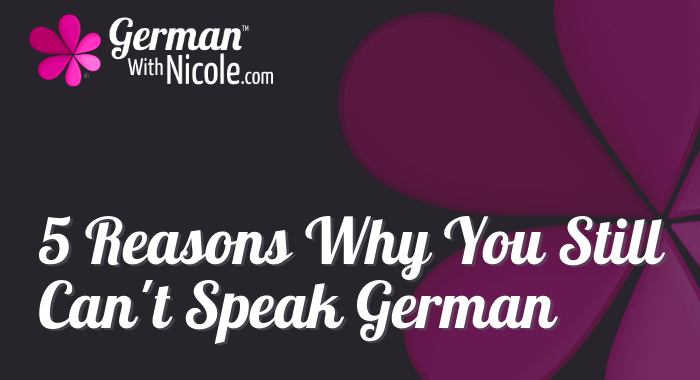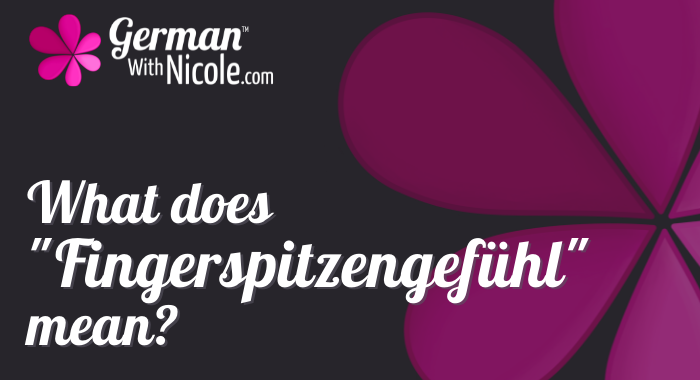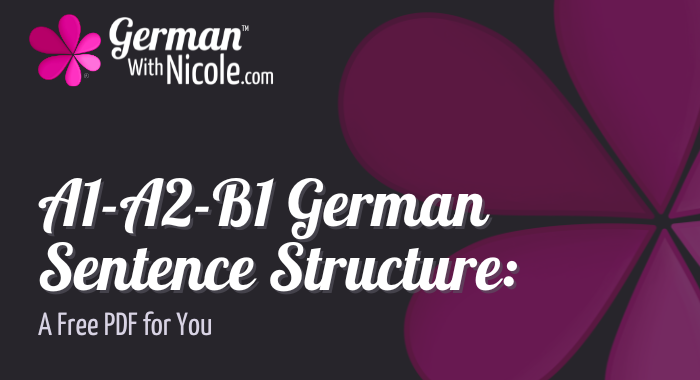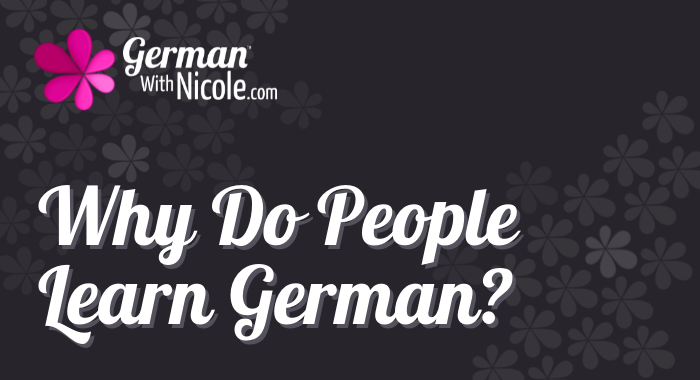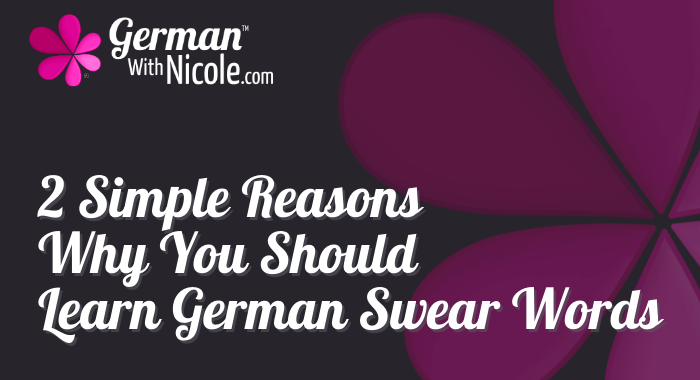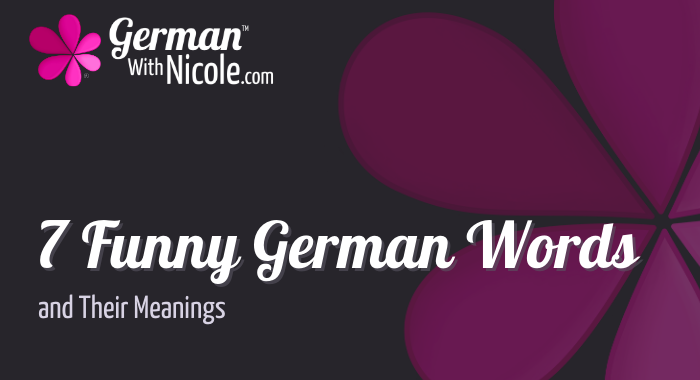das Blog
A1
5 Reasons Why You Still Can't Speak German
Frustration can run pretty high when you take a German class but you just can’t seem to speak it correctly. The baker in Germany doesn’t understand you so you have to point and the person you ask for directions switches to English.
So why is it that you have taken class after class or lesson after lesson, but you still can’t speak German?
There might be more than one reason, and here are five which are common themes amongst German learners.
Which one stops you from speaking German?
Reason …
The 3 Most Important Skills You Need as a German Learner
These are the three skills you need as a beginner, as a novice learner, as an intermediate German learner and beyond.
These are perhaps the most important skills I could help you acquire, no matter if you learn German for travel, as a hobby, or for work.
Without these skills, you won't make as much progress as you could make, given the time and energy you have, and you might find yourself increasingly frustrated.
Learning these skills might help you make more progress over time, and you may f…
What does "Fingerspitzengefühl" mean?
This untranslatable German word is one of my favorites, and I hope it becomes one of yours, too!
You'll learn the meaning of Fingerspitzengefühl and there are plenty of repetitions of it so you can get used to pronouncing it.
It's a long word!
You'll learn the meaning of Fingerspitzengefühl in English and you'll learn when to use it in German.
Reference for the sensitivity of fingertips: https://asknature.org/strategy/fingertips-increase-sensitivity-to-touch/
Why Do People Learn German?
There are a whole host of reasons for learning German, however when I asked my readers, they responded with new and different reasons.
Here are 5 different reasons people learn German (out of the many reasons featured in this episode), in no particular order:
-
Ich liebe deutsche Musik. (I love German music.)
-
Die Deutschen sind praktisch und das finde ich gut. (Germans are practical and I think that's good.)
-
Sprache ist für mich eine große Herausforderung. (German is a big challeng…
Nine Year Anniversary German With Nicole.com!
Nine Years of GermanWithNicole.com!
Although I've taught German since 2010, I've only taught privately and online since 2013. (Wellllll, it may have actually been 2012, but this was a chance development in my life that turned into a business, so if you won't tell anybody, I won't.)
Today you'll hear
-
two short numbers exercises in German,
-
a thank you in German followed by the same text in English,
-
and then five fantastic German words I've come across in the past few years.
How to Say Ukraine and in the Ukraine, Ukranian in German
How to say (the) Ukraine/in the Ukraine in German, plus how to say Ukranians, women and men, and more.
The text of this podcast is below.
There is also a free PDF download for you here, it contains all of the vocabulary words from the blog text/episode.
If you have another question about how to say something in the Ukraine, please scroll down and leave your question as a comment. I'll respond within 24-48 hours.
die Ukraine – the name of the country, with an …
2 Simple Reasons Why You Should Learn German Swear Words
(Note: There are no swear words in this post.)
Are you surprised that you should learn German swear words? You shouldn’t be.
What German language lover or German learner doesn't want to learn German swear words?!
German, like every language, has its own profanity.
It's plain offensive.
So why would I teach you swear words in German? Why would I enable you to potentially offend someone?!
There are two reasons why it's actually a good idea to learn German swear words, and they're going to ma…
7 Funny German Words and Their Meanings
There are so many funny words in German and sometimes their meanings are straight-forward, sometimes they are words we might wish we had as English speakers!
Here are 7 funny German words, including two funny German words for animals (real or imagined?!), with slow pronunciation and the meanings of the words.
This episode is great for learners at the A1, A2, and B1 levels.
die Vokabeln:
Nummer
|
Deutsch |
Englisch |
|
1 |
der Kummerspeck das Hüftgold |
love handl… |
What is the Best Way to Learn German vocabulary?
Yes, German vocabulary learning is the featured topic right now because the most important part of learning German is learning how to learn it.
Vocabulary learning is a HUGE part of that!
This is what you'll hear in this episode:
-
A realization a client of mine had about learning.
-
The answer to: should you use pencil and paper or an app?
-
Three ideas to put fresh wind in your sails for vocab learning.
-
Me getting up on my soap box about "the end-all, be-all method of lea…
Categories
- A1 (69)
- A2 (54)
- B1 (46)
- B2 (23)
- C1 (22)
- Deutsch lernen (78)
- Einkaufen (15)
- Essen (12)
- Grammatik (23)
- Hören (14)
- Landeskunde und Kultur (49)
- Lesen (11)
- Musik (5)
- Nachrichten (4)
- Podcast (61)
- Pronunciation (3)
- Schreiben (3)
- Schwäbisch (4)
- Spiele und Spaß (Games and Fun) (12)
- Sprechen (13)
- Vokabeln (39)
- Video (11)
